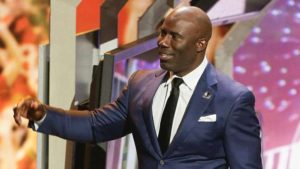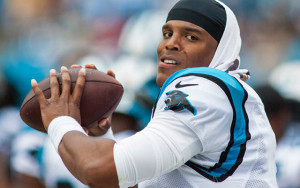Terrell Davis used to be a great football player.
The newly inducted Hall of Fame running back for the Denver Broncos now says he lives in fear — along with other former football players — of a disease he might get later on in life. It’s called chronic traumatic encephalopathy, or CTE.
Davis has reason to be very afraid.
The young man took a battering while carrying a football for the Broncos. He took many hits to the head, as did so many other professional football players. Indeed, studies have revealed recently that more than 80 percent of former NFL players are — or will be — afflicted by CTE, which ultimately diminishes cognitive ability.
“We’re concerned because we don’t know what the future holds. When I’m at home and I do something, if I forget something I have to stop to think, ‘Is this because I’m getting older or I’m just not using my brain, or is this an effect of playing football? I don’t know that.”
Read more about Davis’s comments here.
What does the NFL do about this? It already has taken steps to penalize players who hit other athletes on what they call “helmet-to-helmet contact.” The league has been forced to pay hundreds of millions of dollars to players afflicted by CTE.
The NFL is now dealing almost daily with reports of athletes becoming afflicted with CTE at various stages of its progression.
The term CTE only recently has become part of every-day language, sort of like HIV/AIDS and ALS have become over the years.
Do these grown men stop doing what they do? Do we make football an illegal activity? Must the NFL resort to retooling the game into a two-hand touch football game? No, no and no.
But I surely can understand the fear that Terrell Davis and other former football players are expressing as they advance in years toward elderly status.
I suppose it would be imperative that the NFL do all it can to (a) protect the players on the field with improvements in the equipment they wear and (b) spend whatever it takes to care for those who are permanently damaged by the sport they choose to play.

